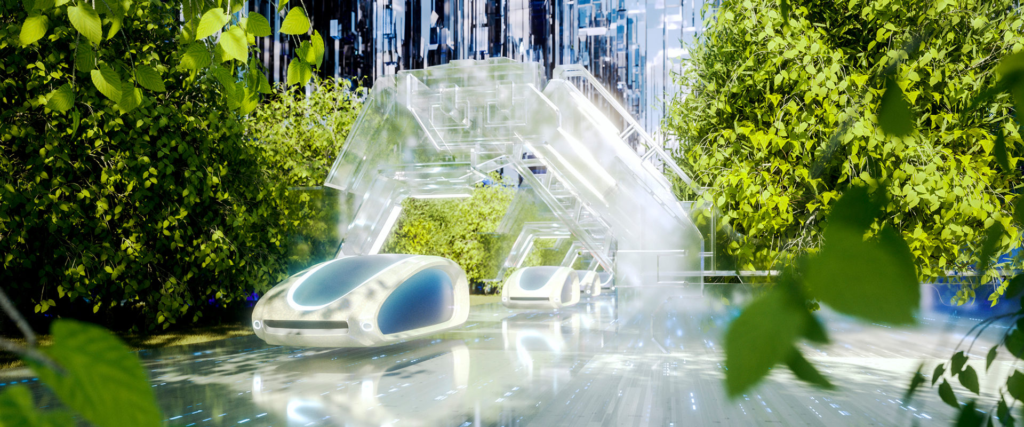
Introduction to Sustainable Vehicle Manufacturing
The automotive industry is in the midst of a transformative revolution. As we shift awareness toward sustainability, manufacturers are exploring innovative ways to reduce their carbon footprint and embrace eco-friendly practices. At the heart of this movement lies renewable energy—a powerful force driving change within vehicle production.
Imagine a world where cars not only take us from point A to point B but also contribute positively to our environment. This vision is becoming more attainable as companies harness clean energy sources for sustainable vehicle manufacturing. The integration of green technology into auto production processes promises not just cleaner vehicles, but also a greener planet.
As traditional methods face scrutiny for their environmental impact, the urgency to adopt sustainable practices has never been greater. Join us as we explore how renewable resources are reshaping the automotive landscape and paving the way for an eco-conscious future in transportation.
The Impact of Traditional Vehicle Manufacturing on the Environment
Traditional vehicle manufacturing has long been a significant contributor to environmental degradation. The production process relies heavily on fossil fuels, emitting vast amounts of greenhouse gases into the atmosphere.
From mining raw materials to assembling vehicles, each step generates waste and depletes natural resources. Water pollution is another alarming consequence, with toxic chemicals often entering waterways during the manufacturing cycle.
Moreover, land use changes for factories and supply chains disrupt local ecosystems. The demand for metals such as aluminum and steel further exacerbates resource extraction challenges.
As society becomes more aware of these issues, the urgency for change grows stronger. Transitioning away from traditional methods toward greener alternatives is essential not only for mitigating climate change but also for preserving biodiversity and fostering healthier communities.
The Rise of Renewable Energy in the Automotive Industry

The automotive industry is undergoing a significant transformation. With growing concerns about climate change, manufacturers are increasingly turning to renewable energy sources.
Solar and wind power are leading the charge. Many factories now harness these clean energy options to reduce carbon footprints. This shift not only helps the planet but also strengthens brand loyalty among eco-conscious consumers.
Electric vehicle production is at the forefront of this movement. Companies are investing heavily in sustainable technologies and practices that prioritize green manufacturing methods.
Moreover, government incentives encourage automakers to adopt cleaner strategies. As regulations tighten around emissions, embracing renewable resources becomes essential for compliance and competitiveness.
This evolution in the automotive sector sets a precedent for future industries as well, showcasing how sustainability can drive innovation and business growth simultaneously. The rise of green technology within vehicle manufacturing marks an exciting new chapter in creating environmentally friendly transportation solutions.
Renewable Energy Sources Used in Manufacturing Electric Vehicles
The shift towards electric vehicles (EVs) has brought renewable energy into the spotlight. Various sources are now being harnessed to power manufacturing processes.
Solar energy tops the list, with factories installing solar panels on rooftops. This clean energy source reduces reliance on fossil fuels while lowering operational costs.
Wind turbines also play a significant role. They generate electricity for production facilities, particularly in regions where wind is abundant.
Biomass offers another alternative, using organic materials to create energy. This source not only minimizes waste but supports local economies as well.
Hydropower is making waves too, especially in areas near rivers or dams. It provides consistent and reliable electricity for EV production lines.
Together, these renewable resources enhance sustainability within the automotive industry while promoting green technology and eco-friendly vehicles at every stage of manufacturing.
Advantages of Using Renewable Energy in Vehicle Manufacturing

Utilizing renewable energy in vehicle manufacturing presents numerous benefits. It significantly reduces greenhouse gas emissions. This shift helps combat climate change and leads to cleaner air.
Moreover, integrating renewable resources like solar or wind power can lower production costs over time. As technology advances, these energy sources become more efficient and affordable.
Sustainable production practices also attract eco-conscious consumers. Many buyers are now prioritizing vehicles from green manufacturers that align with their values.
Additionally, employing clean energy enhances a company’s reputation within the automotive industry. It signifies commitment to sustainability and innovation.
Using renewable energy fosters job creation in new sectors related to green technology. This transition not only supports economic growth but also encourages communities to embrace sustainable practices across various industries.
Challenges and Solutions for Implementing Renewable Energy in the Automotive Industry
Implementing renewable energy in the automotive industry presents several challenges. One significant hurdle is the initial investment required for transitioning from traditional manufacturing processes to green technology. Many companies hesitate due to high upfront costs.
Another challenge lies in integrating renewable resources into existing production lines. Not all facilities are equipped to handle clean energy solutions effectively, requiring upgrades and adaptations.
Supply chain complexities also pose difficulties. Sourcing sustainable materials while ensuring quality can complicate logistics and increase lead times.
However, innovative solutions exist. Government incentives can reduce financial burdens for manufacturers willing to adopt eco-friendly practices. Collaborations with renewable energy providers foster easier integration of clean technologies into operations.
Investing in workforce training ensures employees are well-equipped to manage new systems efficiently. By addressing these obstacles head-on, the automotive industry can pave the way toward a more sustainable future through effective use of renewable energy.
The Future of Sustainable Vehicle Manufacturing with Renewable Energy

The automotive industry stands on the brink of a revolution. As renewable energy sources become more accessible, manufacturers are reimagining their production processes.
Electric vehicles powered by solar and wind energy promise cleaner alternatives. This shift not only reduces carbon footprints but also enhances brand appeal among eco-conscious consumers.
Advancements in battery technology will further integrate renewable resources into manufacturing lines. Imagine factories where every component is made with clean energy.
Sustainable vehicle manufacturing is becoming synonymous with innovation and responsibility. Companies that embrace this change can position themselves as leaders in green technology, tapping into a growing market for eco-friendly vehicles.
Collaboration between automakers and renewable energy providers will drive this transformation forward. Together, they can create a future where sustainability isn’t just an option—it’s the standard for all vehicle production.
Conclusion
The shift towards renewable energy in sustainable vehicle manufacturing marks a significant milestone for the automotive industry. As traditional methods of production have shown their adverse effects on our environment, embracing clean energy solutions is not just beneficial; it’s essential. The integration of renewable resources like solar, wind, and hydropower into manufacturing processes has given rise to eco-friendly vehicles that promote sustainability.
While challenges exist—such as initial costs and technological adaptation—the automotive sector is rising to meet these obstacles with innovative green technology. From electric cars powered by sustainably sourced electricity to factories operating entirely on renewables, advancements are being made daily.
Looking ahead, the potential for growth within this space appears promising. With increasing consumer demand for sustainable production practices and policies supportive of green initiatives, manufacturers must adapt or risk obsolescence. The future lies in balancing performance with environmental responsibility.
Embracing renewable energy isn’t merely an option anymore; it’s becoming a defining characteristic of modern vehicle manufacturing aimed at fostering a cleaner planet for generations to come.
Know more about the Rise of Renewable Energy in Sustainable Vehicle Manufacturing
For more such content, keep visiting QAWire


